Eurovision 2017: What are the UK's chances of winning?
Lucie Jones flies the flag in the bid to end 20 years of hurt, but will Brexit get in the way?
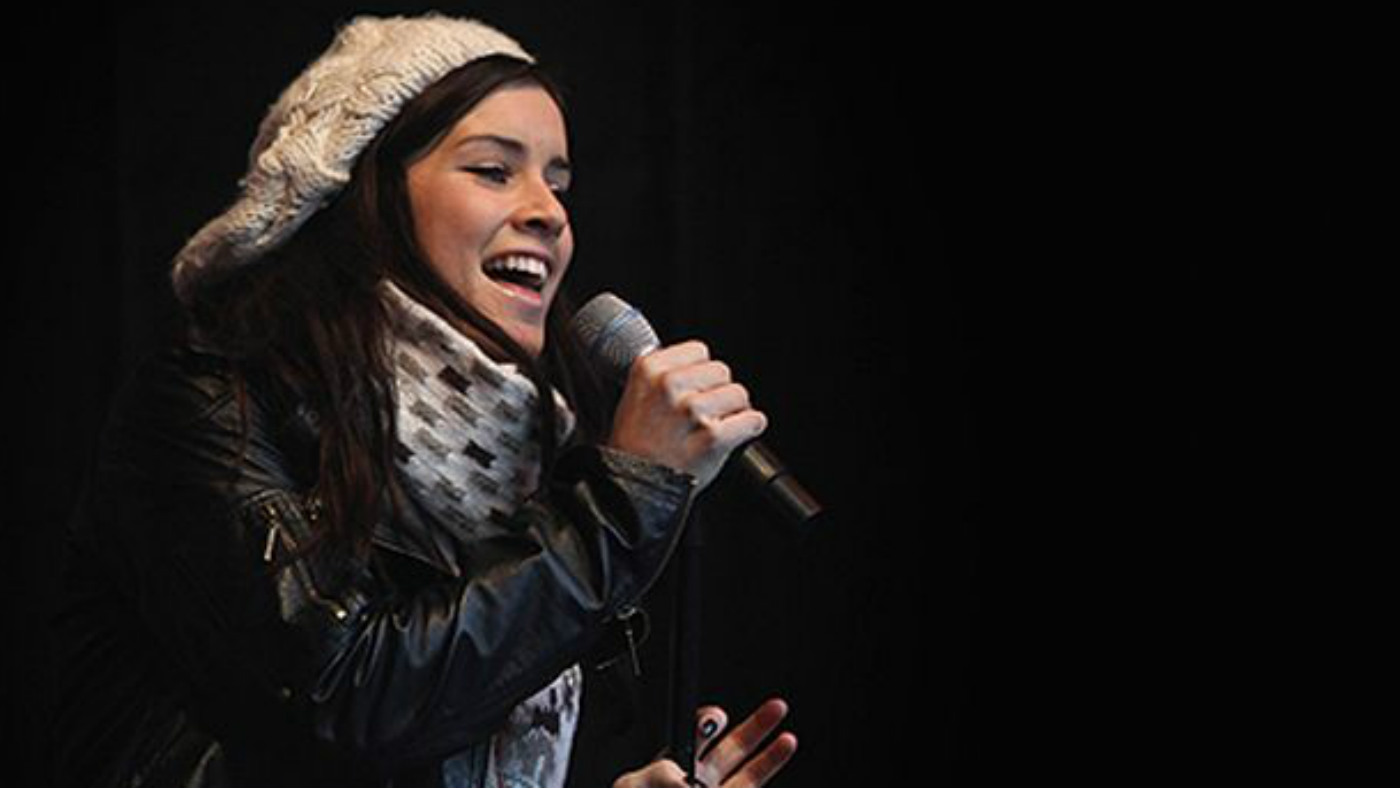
A free daily email with the biggest news stories of the day – and the best features from TheWeek.com
You are now subscribed
Your newsletter sign-up was successful
Eurovision 2016: Ukraine victory sparks 'diplomatic war'
16 May
The organisers of Eurovision 2016 are facing a backlash from Russia following claims that Ukraine's winning song was overtly political and contrary to the rules of the international contest.
Entitled 1944 and sung by Jamala, the song referred to the deportation of Crimean Tartars under Josef Stalin. Tensions remain high between Russia and Ukraine following the annexation of Crimea two years ago, and the song has been interpreted as a swipe at the Russian government.
The Week
Escape your echo chamber. Get the facts behind the news, plus analysis from multiple perspectives.

Sign up for The Week's Free Newsletters
From our morning news briefing to a weekly Good News Newsletter, get the best of The Week delivered directly to your inbox.
From our morning news briefing to a weekly Good News Newsletter, get the best of The Week delivered directly to your inbox.
"Jamala, whose real name is Susana Jamaladynova, is herself a Crimean Tatar who has not been home since shortly after Russia's 2014 annexation of the peninsula," says The Guardian. "Her parents and extended family still live there."
The controversy was compounded when Russian singer Sergey Lazarev, who was widely tipped to win, managed only third place, behind the Australian entrant Dami Im.
"Eurovision has long faced accusations of politically motivated judging – but this year's results have caused an all-out diplomatic war," says the Daily Mail.
Russian politician Frants Klintsevich claims that it was not Jamala and her song that won Eurovision 2016 – "it was politics that beat art".
A free daily email with the biggest news stories of the day – and the best features from TheWeek.com
While the juries from Russia and Ukraine did not award each other any points, the Ukrainian public gave Russia's entry the maximum 12 points. The Russian public also came out in support of Ukraine, offering Jamala ten points.
The Kremlin-backed news outlet, Russia Today, suggests that the result was rigged to prevent Russia winning.
"The contest has never been so blatantly political and the agenda so obvious," it says. "While Russians will understandably feel cheated – in one way what happened last night was good as it shows to everyone the limits of democracy in the West."
Meanwhile, British hopefuls Joe and Jake were at no risk of causing an upset, except at home, after they came 23rd out of 26 on Saturday night with their song You're Not Alone.
What time is Eurovision 2016 and what are the odds?
13 May
The Eurovision Grand Final is fast approaching, with 26 nations ready to duke it out live on stage in Sweden tomorrow night.
Graham Norton will be offering his wry commentary to UK viewers from Stockholm's Globe Arena on BBC One from 8pm.
The acts were whittled down on Tuesday and Thursday in the semi-finals. Ireland, the most successful country in the contest's 61-year history, has been knocked out after former Westlife singer Nicky Byrne failed to make the final.
The UK's entry, You Are Not Alone, by former The Voice contestants Joe and Jake, qualifies automatically as it is one of the "big five" countries along with France, Germany, Italy and Spain.
The duo are currently sitting at number 16 in the bookmakers' line-up – although even 16th place would be the UK's highest-ranking entry since Blue rocked Dusseldorf with I Can in 2011.
As reigning winners, Sweden also automatically advances to the grand final.
The others qualifiers are: Belgium, Czech Republic, The Netherlands, Azerbaijan, Hungary, Israel, Bulgaria, Poland, Australia, Cyprus, Serbia, Lithuania, Croatia, Russia, Latvia, Ukraine, Malta, Georgia, Austria and Armenia.
So who are the bookies' favourites?
1. Russia[[{"type":"media","view_mode":"content_original","fid":"94118","attributes":{"class":"media-image"}}]]
With its pounding beat and classic Eurovision nonsense lyrics ("Thunder and lightning, it's getting exciting"), it's no wonder You Are The Only One is Oddschecker's pick to take the top spot.
Hopefully, showrunners won't have to resort to boo-masking technology, as officials did at last year's contest in Vienna, when the Russian entry was met with cat-calls for the second year running in response to the country's repressive anti-gay laws.
2. Australia[[{"type":"media","view_mode":"content_original","fid":"94120","attributes":{"class":"media-image"}}]]
The Aussies' second Eurovision entry is the singable Sound of Silence, although the song's lyrics briefly got them in hot water. A mention of "face time" was suspected of breaking the contest's rules about brand names, until officials were reassured that they were two separate words and not a reference to Apple's FaceTime app.
3. Ukraine[[{"type":"media","view_mode":"content_original","fid":"94356","attributes":{"class":"media-image"}}]]
Eurovision has frequently acted as a thin musical veneer, covering what is essentially a geopolitical bunfight, but Ukraine has stepped it up a notch with an entry Politico describes as "sure to provoke Russia". 1944 relates the plight of the Tartar people deported from Crimea by Stalin, a theme which may be discerned as a jab at Russia's involvement in the recent conflict in the region. Sample lyric: "When strangers are coming, they come to your house, they kill you all and say, 'We're not guilty.'" And that's just the first line…
4. France[[{"type":"media","view_mode":"content_original","fid":"94119","attributes":{"class":"media-image"}}]]
France has learned a lesson from last year, when glum war ballad N'oubliez Pas ended up third from last with a mere quatre points. This year, it is second favourite thanks to the almost scientifically radio-friendly J'ai Cherche.
5. Sweden[[{"type":"media","view_mode":"content_original","fid":"94121","attributes":{"class":"media-image"}}]]
Sweden has won the contest three times in the 21st century, including, of course, last year's victory with Mans Zelmerlow's Heroes.
If I Were Sorry is a stripped-back number without much Eurovision glitz to it – however, they have the backing of a home crowd, so could they do it again? As the winning country's public broadcaster has to host the costly extravaganza the following year, Sweden's national broadcasting company will be praying the answer is no.
6. Armenia[[{"type":"media","view_mode":"content_original","fid":"94647","attributes":{"class":"media-image"}}]]
Armenia has only been competing in the contest for ten years, taking fourth place in 2008 and 2014. This could be their year, however - LoveWave stands out of the Eurovision pack thanks to some ethereal wailing and the kind of husky warble that would make Bonnie Tyler proud.
While the shrill squeal of pipes in the background might not be easy listening, Eurovision usually appreciates a folky interlude. Sultry performer Iveta Mukuchyan's long locks also lend themselves promisingly to being blown around by a wind machine…
7. Malta[[{"type":"media","view_mode":"content_original","fid":"94122","attributes":{"class":"media-image"}}]]
The island nation failed to qualify for the contest last year but looks set to punch well above its weight next month. With the right staging (flashing lights and dry ice, maybe an elaborate fake waterfall) Ira Losco's dramatic Walk on Water could take Stockholm by storm.
Eurovision 2016: Australia allowed to keep 'face time' lyric
5 April
Australia's entry for the Eurovision Song Contest will not have to be rewritten, despite claims that Dami Im's song contains product placement for Apple.
Sound of Silence features the line "trying to feel your love through face time", which was thought to fall foul of rules barring contestants from advertising in their songs, says the BBC.
Eurovision prohibits "messages promoting any political cause, company, brands or services" in any of its entrants.
In previous years, contestants have been forced to rewrite their material - San Marino's 2012 entry Facebook Uh, Oh, Oh (A Satirical Song) had to be renamed The Social Network Song (Oh Oh Uh Oh Oh).
However, the Eurovision Song Contest reference group which rules on such disputes – and no, this is not 1 April - has cleared Sound of Silence on the basis that Apple's product is styled FaceTime while the lyric spells it as "face time".
The group cites the US dictionary Merriam-Webster, which it says defines "face time" as "time spent meeting with someone".
This is Australia's second time in the competition. It came fifth last on its debut last year, when it was admitted as part of Eurovision's 60th birthday celebrations.
According to the contest organisers, Australia's inclusion is "an exciting step" which will help make Eurovision "a truly global event".
However, the antipodean nation is not the first state outside Europe to take part. Israel has been a regular since 1973, while Morocco competed in 1980.
The competition was created to publicise the Eurovision Network for the exchange of TV programmes, of which Israel and Morocco are members.
Eurovision 2016: who will represent the UK?
25 February
On Friday, the British public will be making their minds up and voting for this year's UK entry for the Eurovision 2016 grand final on 14 May.
The BBC has lined up six acts to choose from in Eurovision: You Decide - so who are the brave souls hoping for a place in Stockholm and do any of them stand a chance of ending the UK's 21st-century dry spell?
You're Not Alone – Joe and Jake
Joe and Jake met as contestants on series four of The Voice and have become pals, singing partners and now "the Beeb's shoddy attempt at One Direction", if The Guardian is to be believed.
You're Not Alone is a boppy number that wouldn't sound out of place on the Radio One breakfast show, but it's not the most memorable of tunes. However, the Eurovision crowd usually appreciates a feelgood number sung by a handsome lad - and this one boasts two of them.
Shine a Little Light – Bianca
Shine a Little Light's title is a cheeky nod to the UK's last Eurovision triumph - Love Shine a Light, from 1997 – but its pounding beat has more in common with Sweden's 2012 winner, Euphoria. It falls down in the same place as Bonnie Tyler's 2013 dud Believe In Me - a dull chorus unlikely to get Stockholm on their feet.
When You Go – Dulcima
When You Go, a jaunty cross between Lady Antebellum and Edward Sharpe and The Magnetic Zeros (think Home), won't be to all tastes, especially with the chanting and drumming. It's a bit weird, but Eurovision has historically gone bonkers for folky theatrics. Paired with a woodland setting, a couple of fiddlers and some puffy blouses, it might just do the trick.
A Better Man – Matthew James
Matthew James was formerly a member of Bad Boys Inc and his Eurovision effort has a distinctly 1990s boyband vibe. The question is: will it hit that nostalgic sweet spot or simply come across as horribly outdated? In any case, A Better Man falls firmly into the "inoffensive" category – it "sounds like it could be the theme tune to a daytime TV soap", was the Daily Telegraph's verdict.
Until Tomorrow – Darline
Possibly the most radio-friendly of this year's entries, Darline's country-tinged pop stylings have more than a whiff of early Taylor Swift about them. Until Tomorrow boasts a chilled, summery vibe and duo Abby Inez and Cara Beth Beard's harmonies are easy on the ear - but is it all a bit too nicey-nicey to blow the crowd away?
Miracle - Karl William Lund
Imagine Olly Murs, Gary Barlow and Will Young having a baby and you have a decent picture of Karl William Lund, whose song, Miracle, is being touted as the bookies' favourite to become the UK's official entry.
With a catchy tune, singalong chorus and Lund's mum-friendly good looks, Miracle seems almost scientifically engineered to win over the audience in Stockholm. But previous experience has shown that Eurovision doesn't play by anyone's rules…
Eurovision 2016: everything you need to know
22 February
Love it or loathe it, it's Eurovision season again. On Friday, the nation will be making its mind up and voting for the act they want to see as the UK's official entry in the grand final.
But while it may be deja vu for Sweden, hosting the final for the second time in four years, it's all change when it comes to the voting system. This year sees a massive overhaul in the way the show's results unfold.
It's the biggest reform since 1975, when televoting was first introduced. So how will the new system work – and will it help the UK's chances of dodging the dreaded "nul points"?
When is the Eurovision Song Contest?
This year's grand final takes place in Stockholm on 14 May. Viewers can expect a good show, if past form is anything to go by. When Malmo hosted the final in 2013, the Swedes ditched the usual format of awkward banter between grinning presenters in favour of comedienne Petra Mede and a genuinely amusing song about Swedish stereotypes. Mede is set to return for this year's show, presenting alongside singer Mans Zelmerlow, who won last year's contest.
How will the changes to the voting system work?
Under the previous system, each country awarded its points after combining the public vote with scores given by their national jury panel. Now, only the jury's score will be announced by the country and the results of the public vote will be revealed in the arena by the show's presenters. The two scores will then be combined, with the final tally revealed in reverse order at the end of the show.
Eurovision bosses hope the changes will make the final more exciting and prevent the yearly exodus of exhausted viewers heading to bed when it becomes apparent who is on course to win. This time round, the audience will need to stay glued to the screen until the very last moment.
While the new system won't change the final scores, Eurovision fans will be interested to see how the jury's verdict differs from the public vote. At least if the UK is at the bottom, we'll know exactly who to blame.
Will that make the show longer?
Yes, and while that may cause the casual Eurovision viewer to blanch with dread, the organisers are banking on the hope that the results portion will be much livelier. So at least the time should pass quickly.
What songs should we be looking out for?
The Eurovision Song Contest has long been as much about politics as it is about naff lyrics and surreal choreography. Recent finals have seen the Russian entry being booed while the lesbian kiss of one Finnish act caused Turkey to scrap the whole broadcast. This year, it's the Ukrainian entry – a song about Stalin's deportation of the Muslim Tatar minority – that has set tongues wagging. Just in case they weren't being clear enough, singer Jamala told The Guardian that the deportations reminded her of Russia's 2014 annexation of Crimea. If the ballad, called 1944, makes it to the final, it's sure to ruffle some feathers - especially if the audience likes it.
For pure nostalgia, Ireland's entry will be one to watch for 1990s boyband fans – Sunlight is performed by former Westlife singer Nicky Byrne.
-
 The environmental cost of GLP-1s
The environmental cost of GLP-1sThe explainer Producing the drugs is a dirty process
-
 Greenland’s capital becomes ground zero for the country’s diplomatic straits
Greenland’s capital becomes ground zero for the country’s diplomatic straitsIN THE SPOTLIGHT A flurry of new consular activity in Nuuk shows how important Greenland has become to Europeans’ anxiety about American imperialism
-
 ‘This is something that happens all too often’
‘This is something that happens all too often’Instant Opinion Opinion, comment and editorials of the day
-
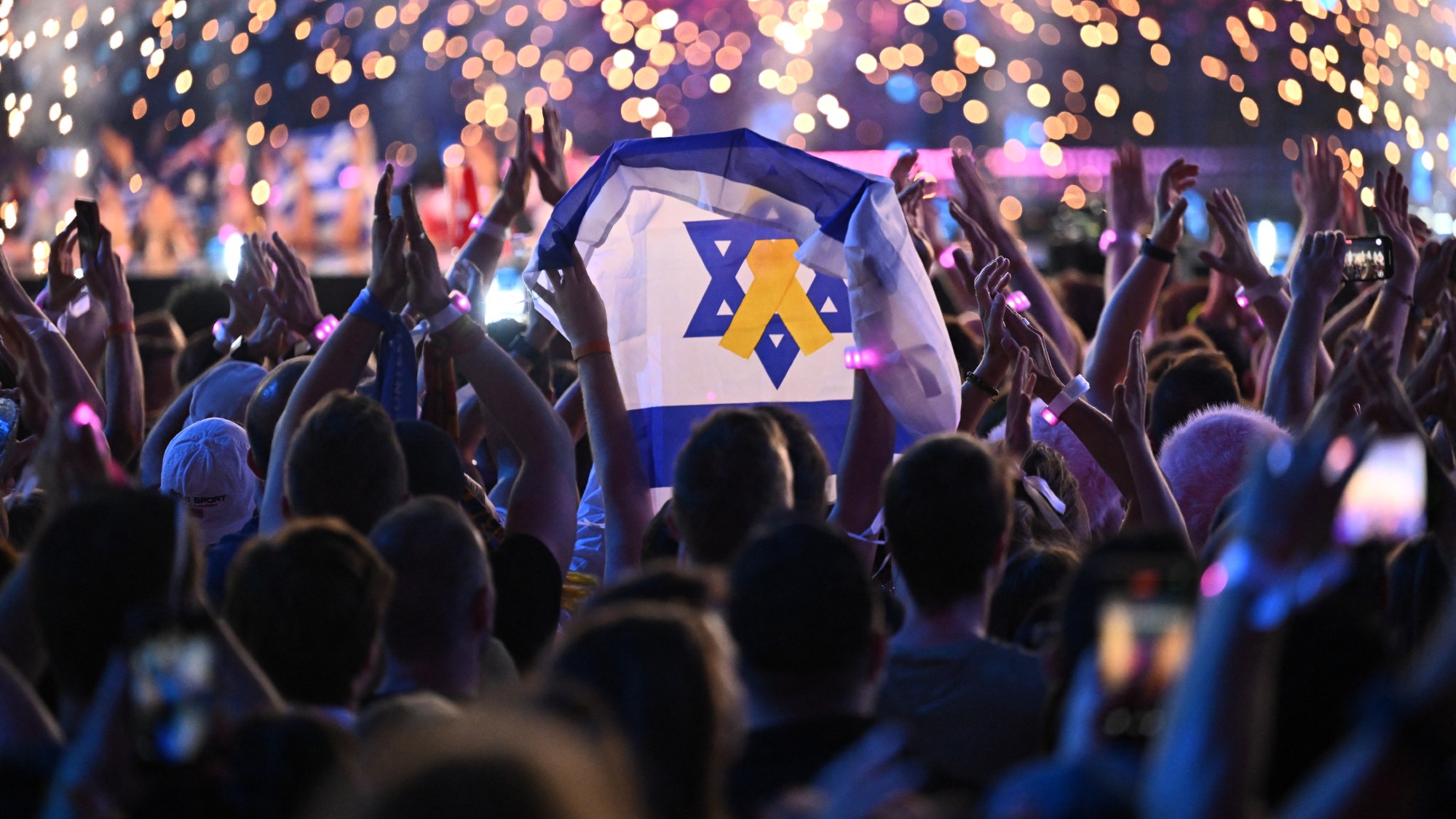 Eurovision faces its Waterloo over Israel boycotts
Eurovision faces its Waterloo over Israel boycottsTalking Point Five major broadcasters have threatened to pull out of next year’s contest over Israel’s participation
-
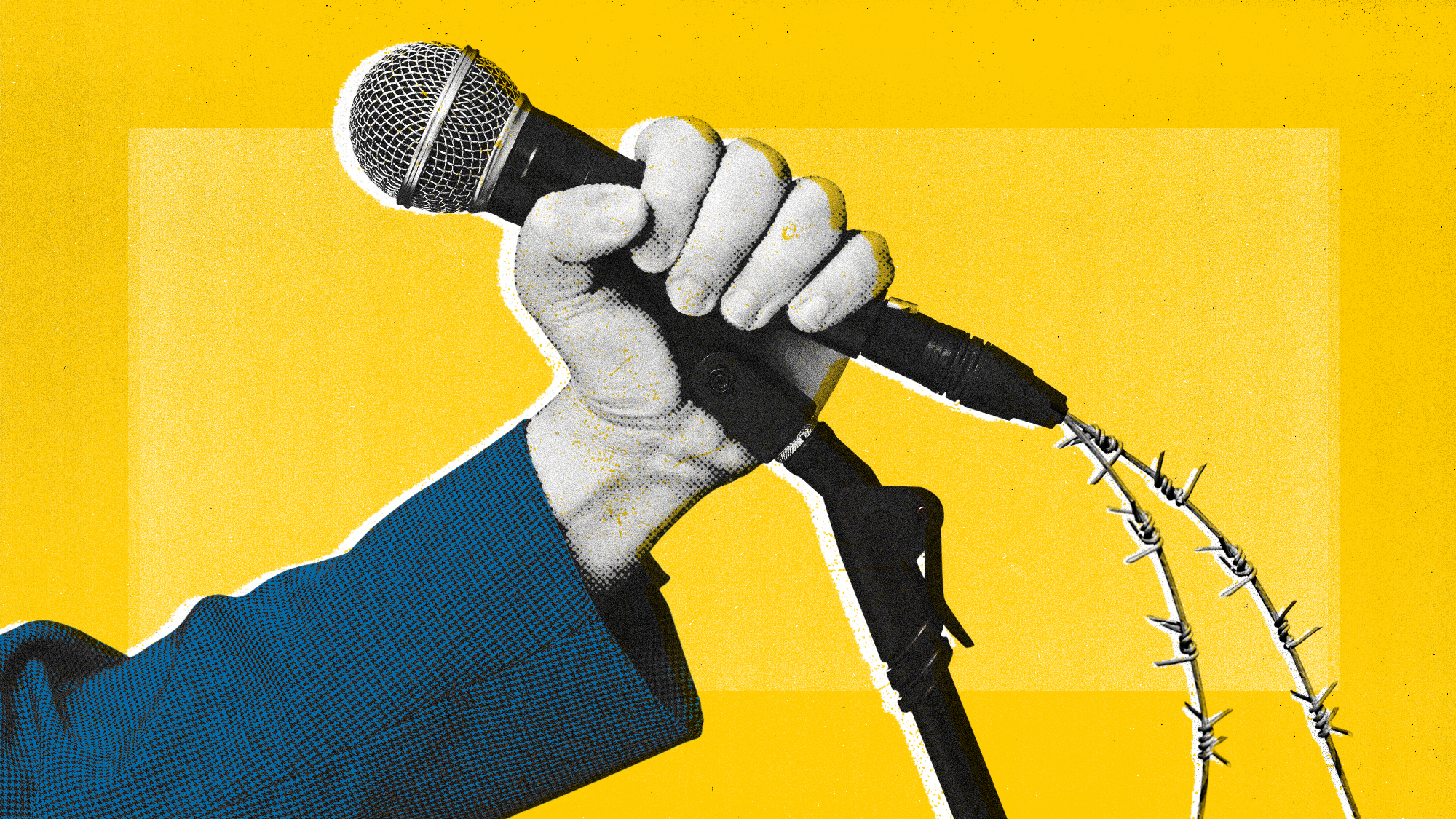 Eurovision 2024: how is politics playing out in Sweden?
Eurovision 2024: how is politics playing out in Sweden?Today's big question World's most popular song contest 'has always been politically charged' but 'this year perhaps more so than ever'
-
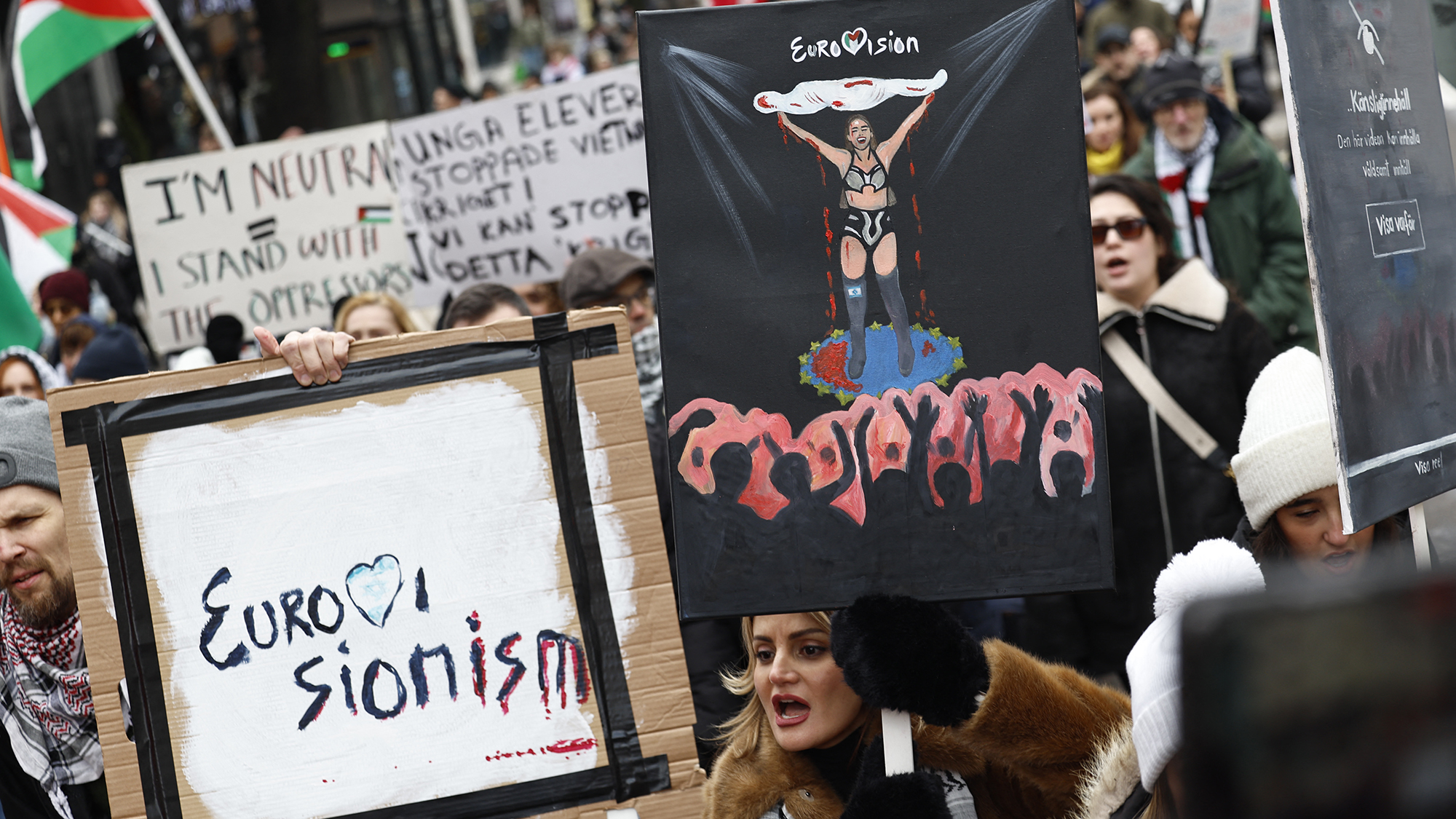 Eurovision stars weigh politics and principles as calls for boycott over Israel grow
Eurovision stars weigh politics and principles as calls for boycott over Israel growUnder The Radar One of the biggest artistic competitions on Earth finds itself in the middle of a widening debate about if — and how — to address the ongoing war in Gaza
-
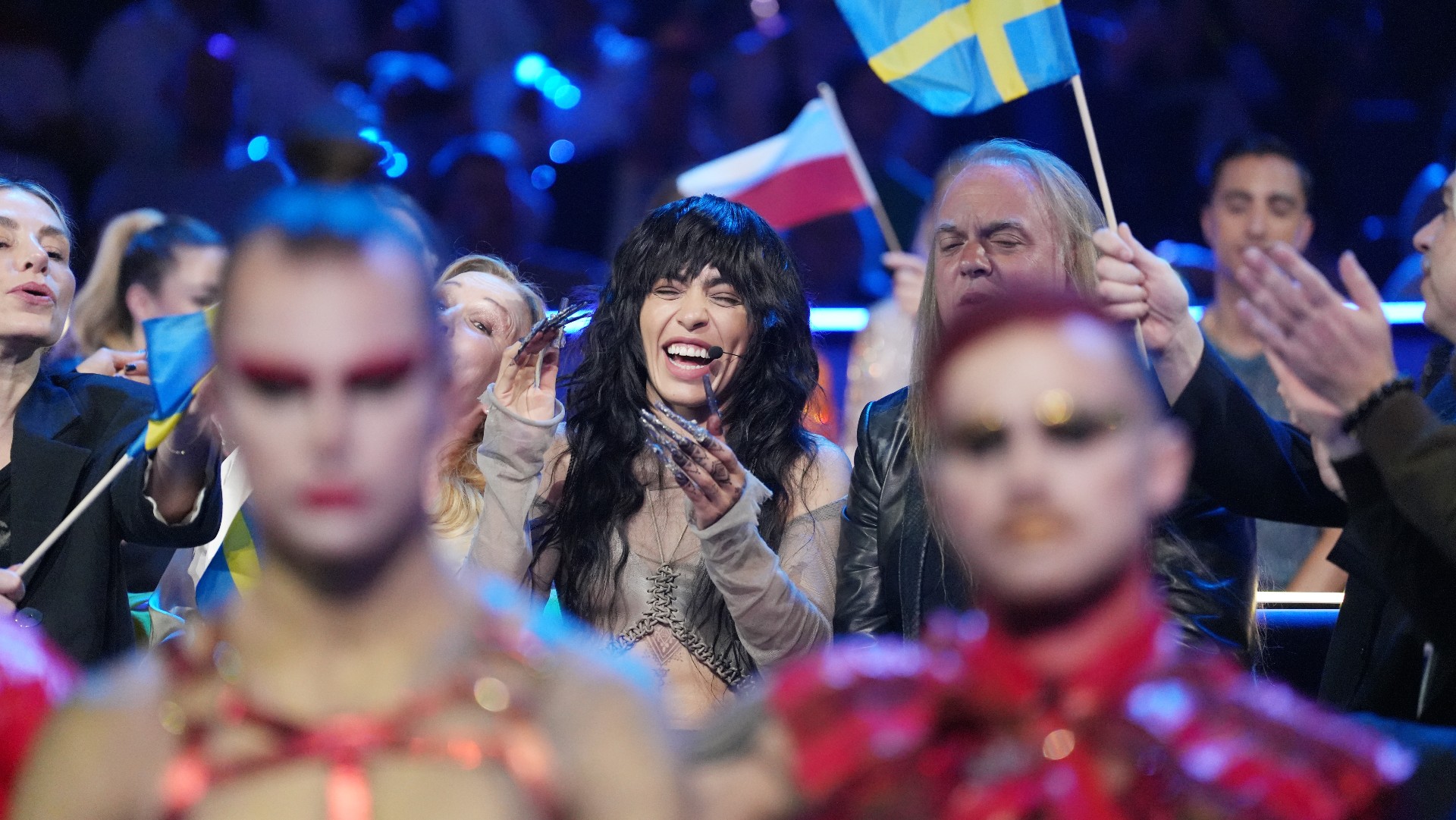 Is Eurovision finally cool?
Is Eurovision finally cool?feature Many British fans of Eurovision speak enthusiastically about its tolerance and openness
-
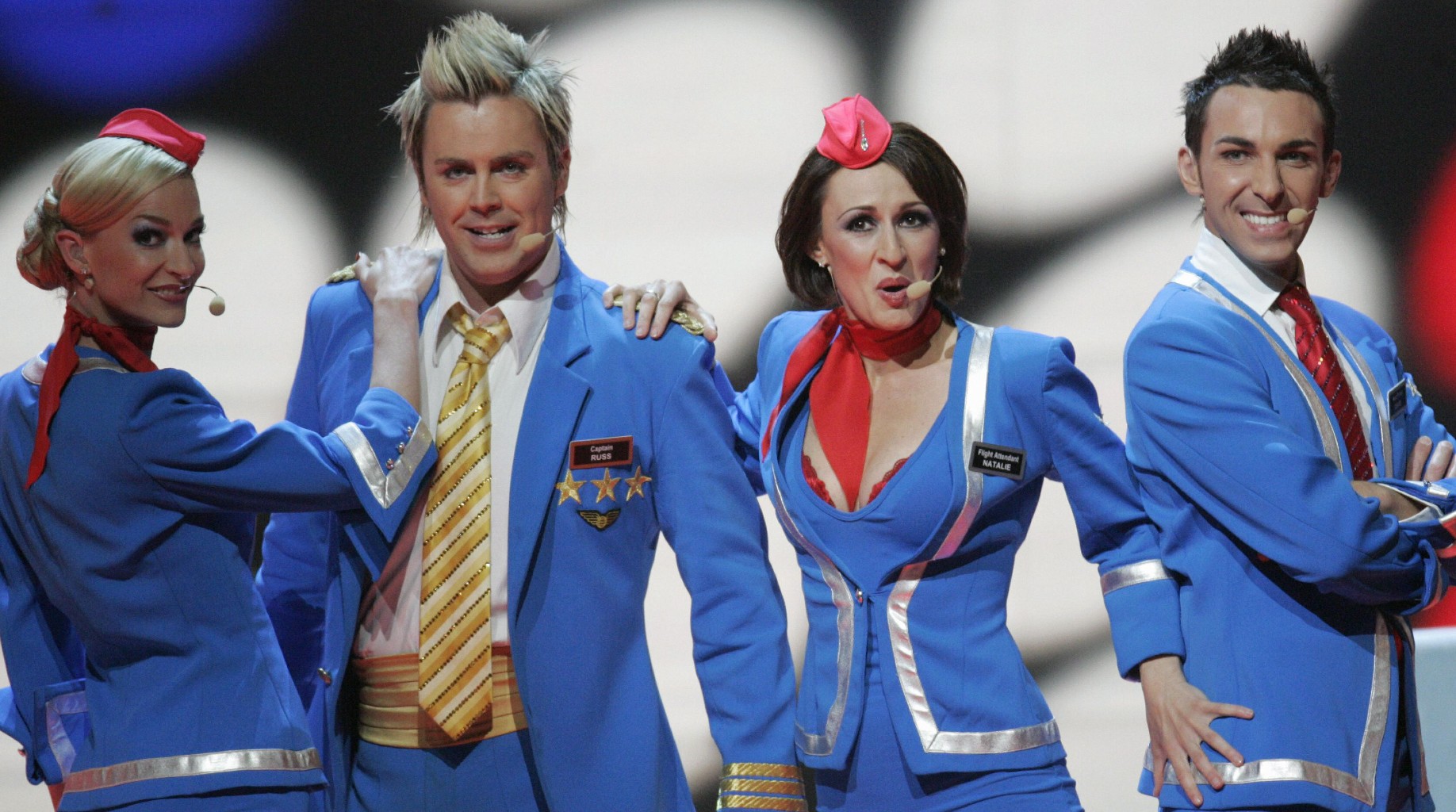 The weirdest Eurovision performances of all time
The weirdest Eurovision performances of all timeIn Depth All the weird – and wonderful – acts that have left Eurovision audiences stunned, from Windows95man to Dustin the Turkey
-
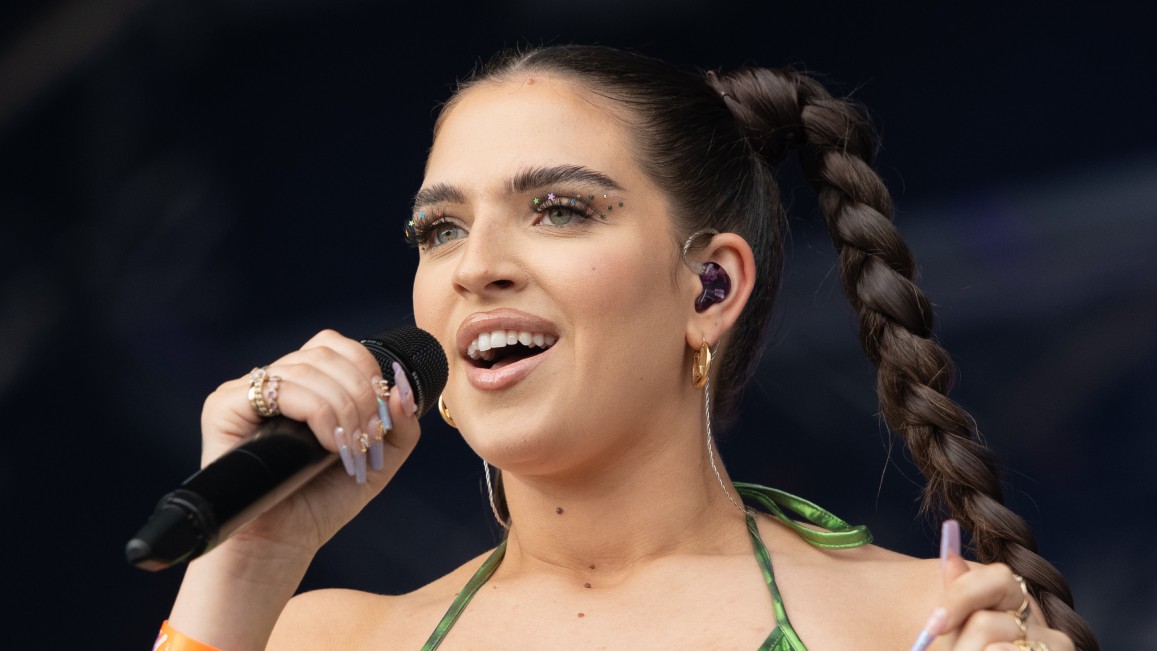 Mae Muller: the UK’s ‘fresh-faced’ Eurovision contestant
Mae Muller: the UK’s ‘fresh-faced’ Eurovision contestantIn the Spotlight The 25-year-old pop star has already toured with stars such as Little Mix
-
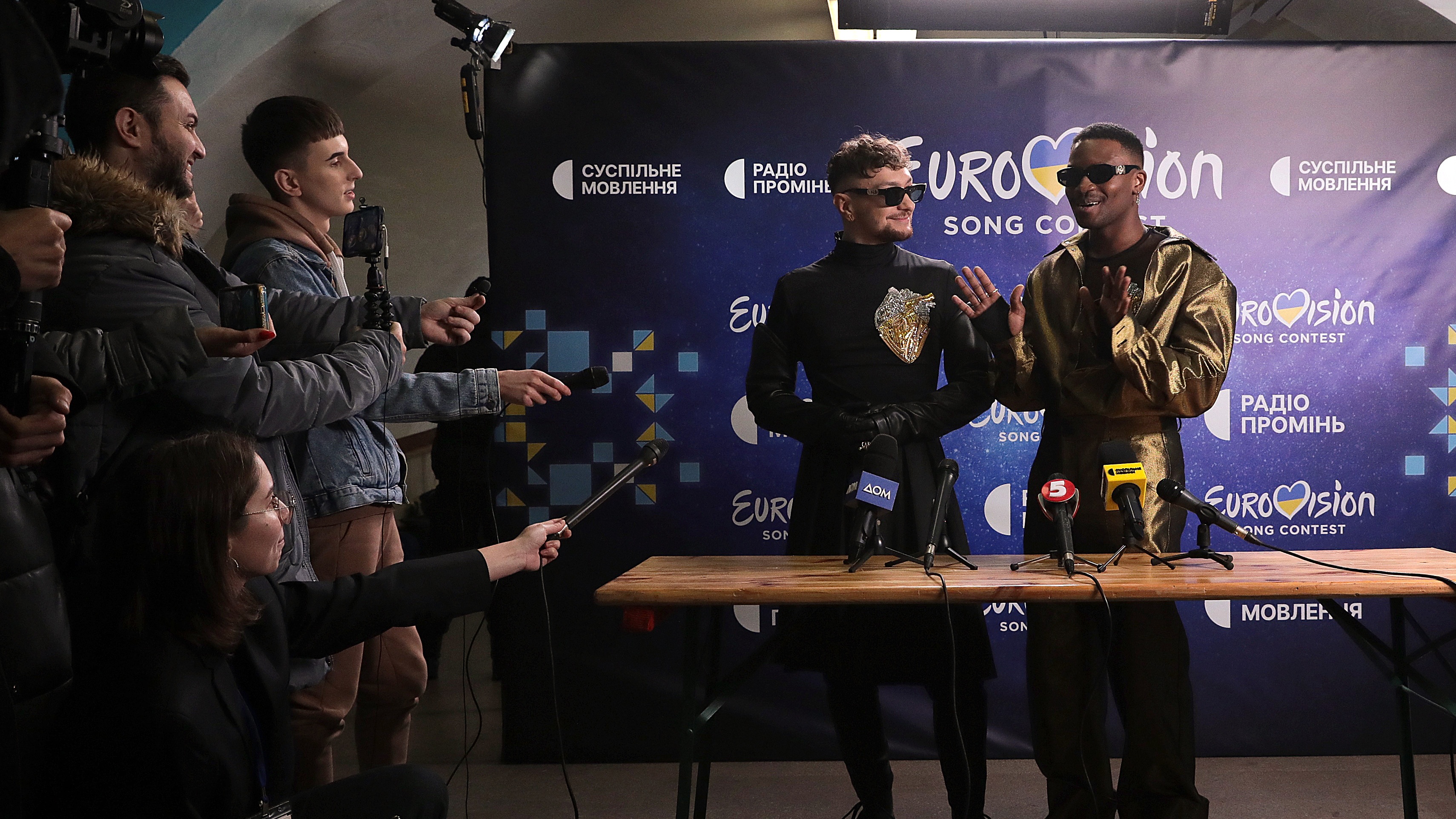 Eurovision 2023: what you need to know about Liverpool extravaganza
Eurovision 2023: what you need to know about Liverpool extravaganzaIn Depth This year’s hosts, current favourites and new voting rules
-
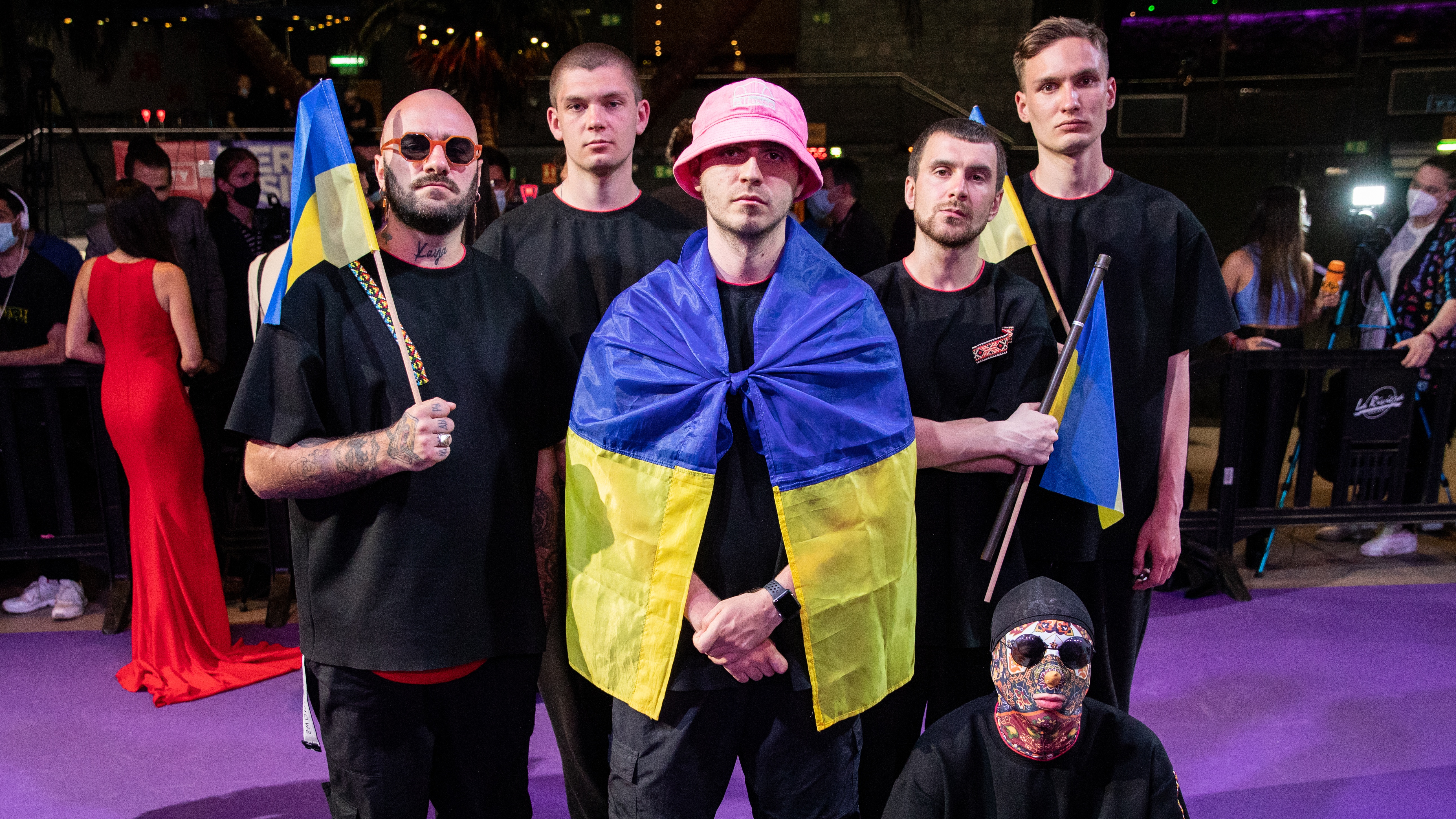 Eurovision venue odds: the cities most likely to host the song contest
Eurovision venue odds: the cities most likely to host the song contestIn Depth Glasgow is the frontrunner to host the famous competition